
Find Help
More Items From Ergsy search
-

Are there any government programs that can help me avoid eviction?
Relevance: 100%
-
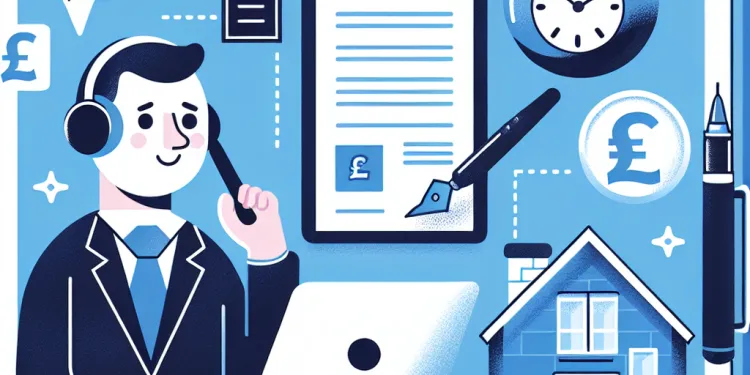
Can I negotiate with my landlord to avoid eviction?
Relevance: 61%
-
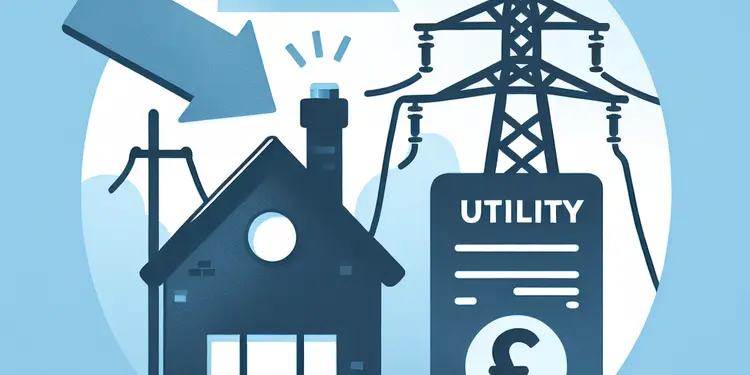
Are there government programs that help with utility bills?
Relevance: 53%
-
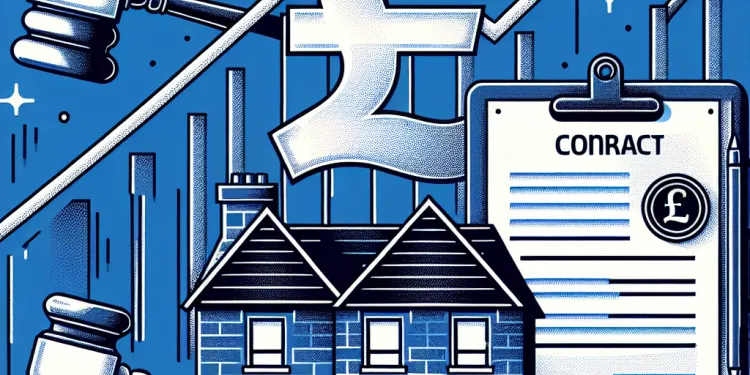
Are there changes to the eviction process?
Relevance: 51%
-
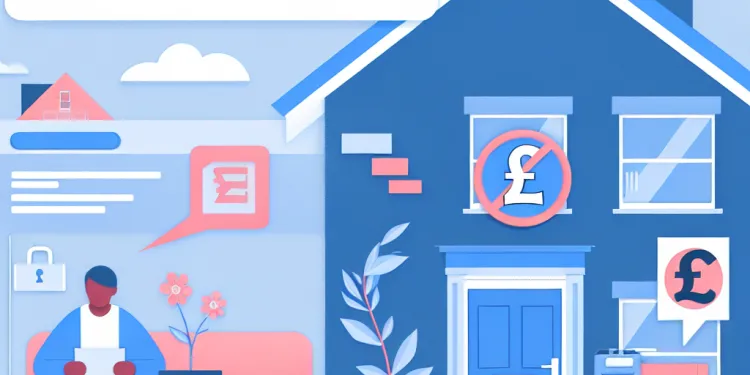
What can I do if my landlord wants to evict me?
Relevance: 50%
-

What are my rights during the eviction process?
Relevance: 48%
-

How do I apply for a small business loan through a government program?
Relevance: 47%
-

Where can I find information on government support programs for small businesses?
Relevance: 46%
-
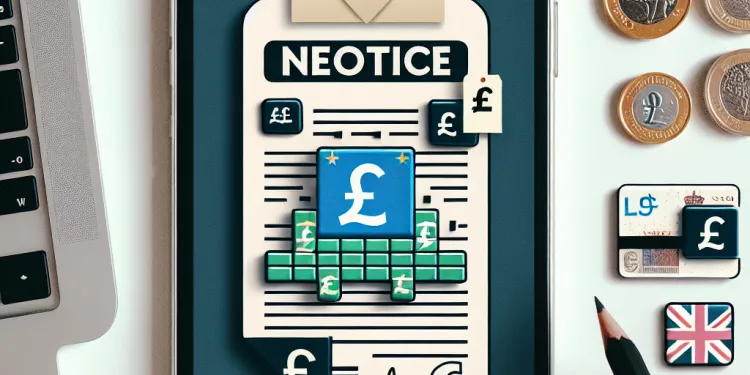
Has the notice period for eviction changed?
Relevance: 46%
-

Can eviction affect my credit score?
Relevance: 45%
-
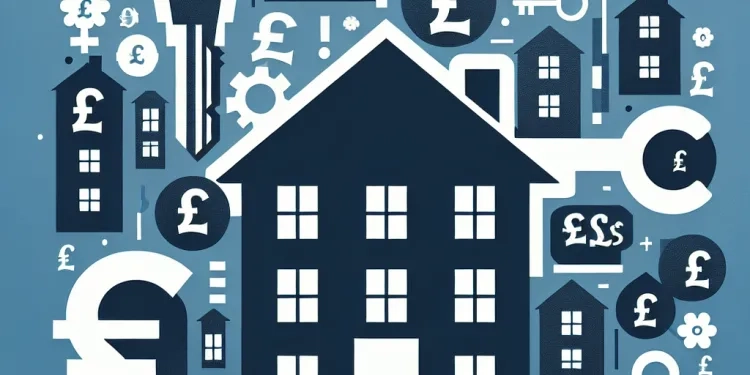
What are the consequences of having an eviction on my record?
Relevance: 45%
-
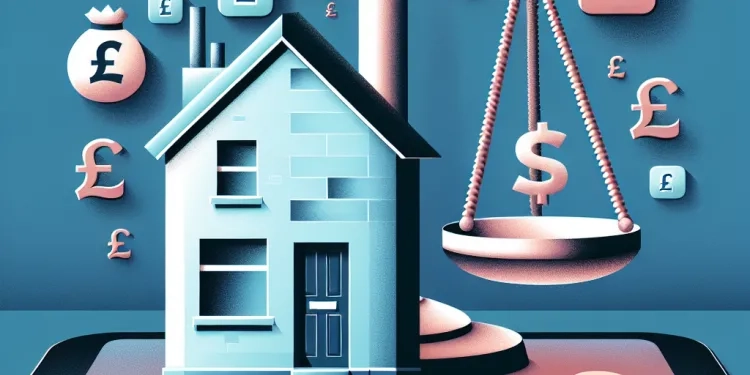
Can I appeal a court's eviction decision?
Relevance: 44%
-
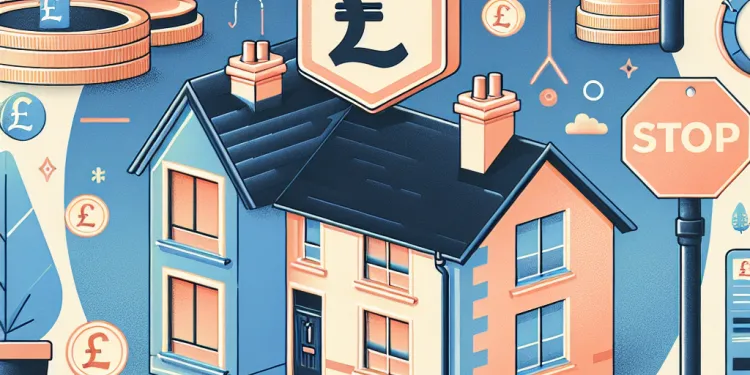
Can I stop an eviction if I catch up on rent payments?
Relevance: 44%
-

Does filing for bankruptcy stop an eviction?
Relevance: 44%
-
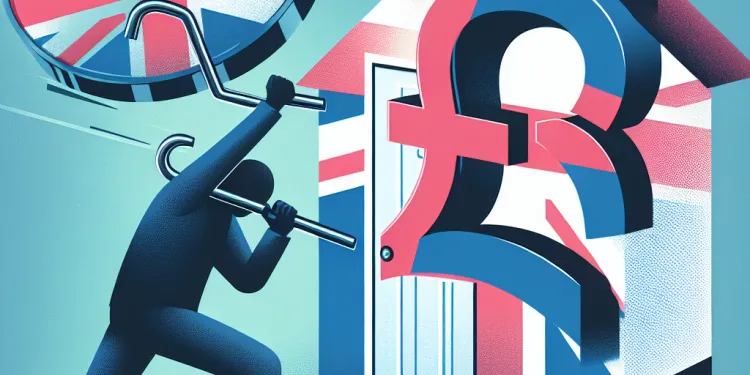
How can I contest or challenge the eviction?
Relevance: 43%
-

How do I find alternative housing quickly if evicted?
Relevance: 43%
-
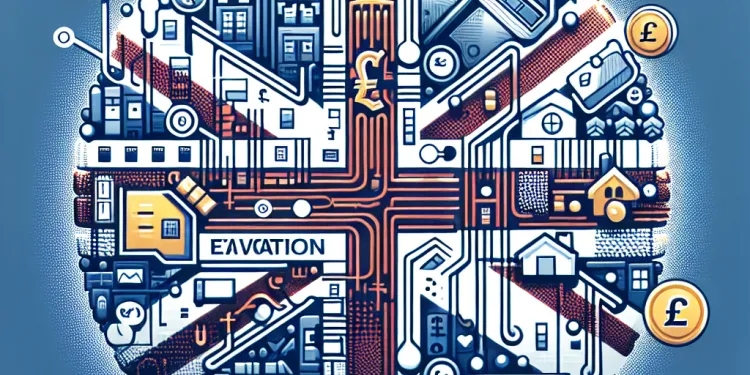
Can my landlord evict me without providing a reason?
Relevance: 42%
-
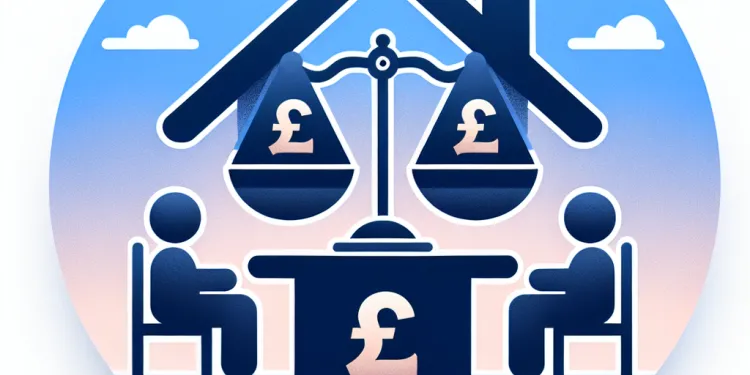
Is mediation an option to resolve eviction disputes?
Relevance: 42%
-
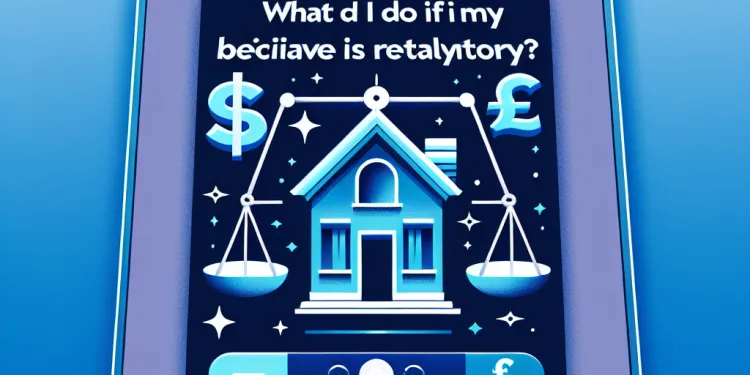
What can I do if I believe my eviction is retaliatory?
Relevance: 42%
-

What should I do if I can't afford a lawyer for the eviction process?
Relevance: 41%
-
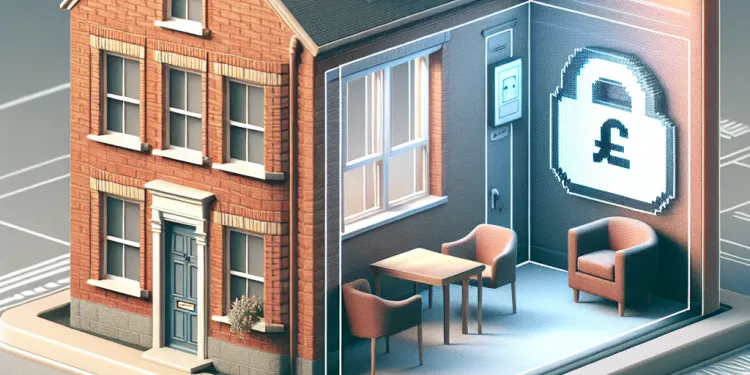
Can a landlord lock me out or remove my belongings to evict me?
Relevance: 41%
-
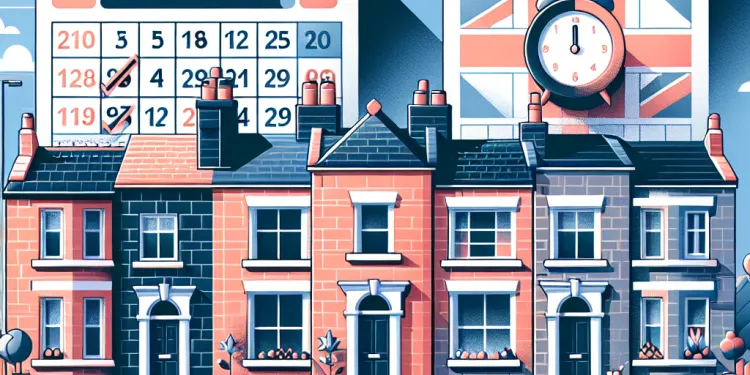
What happens if I stay beyond the eviction deadline?
Relevance: 40%
-
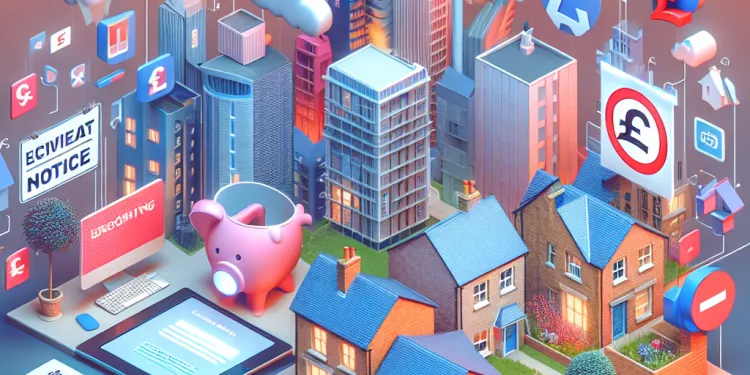
What should I do if I receive an eviction notice from my landlord?
Relevance: 39%
-

How can I prepare for an eviction court hearing?
Relevance: 39%
-
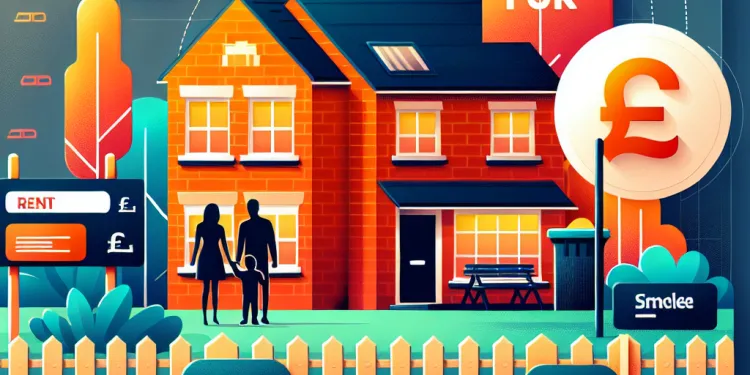
Can a landlord evict me for complaining about property conditions?
Relevance: 38%
-

How long do I have to move out after receiving an eviction notice?
Relevance: 37%
-
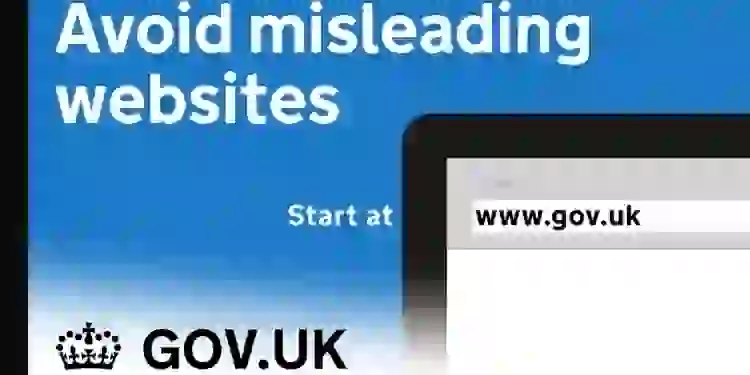
Avoid misleading websites that copy government websites GOV.UK
Relevance: 35%
-

How can I get government support for my small business?
Relevance: 33%
-

Are there mentorship programs for community helpers?
Relevance: 33%
-

What are diversion programs for drug offenders?
Relevance: 32%
-

Are there any food assistance programs available for seniors?
Relevance: 32%
-

What types of government support are available for small businesses?
Relevance: 32%
-
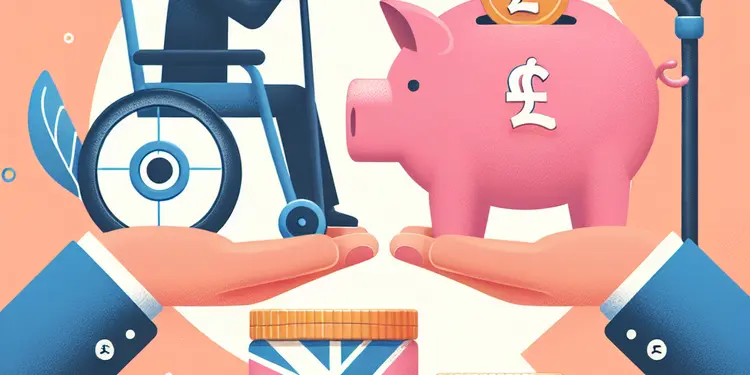
Are there any financial assistance programs for mobility equipment?
Relevance: 32%
-

Are there financial support programs for carers of Alzheimer's patients?
Relevance: 32%
-
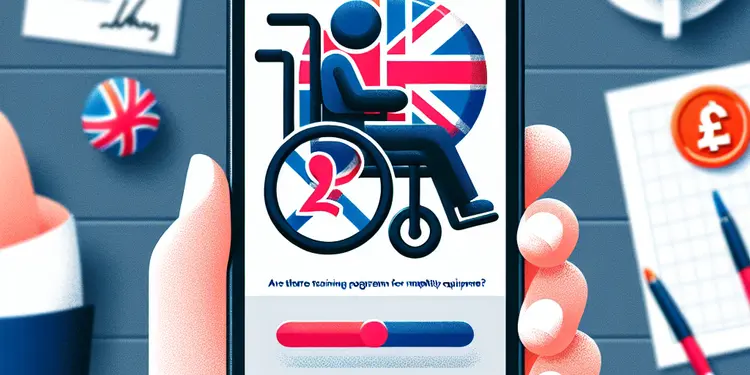
Are there training programs for using mobility equipment?
Relevance: 31%
-

What are some safety programs specifically for seniors?
Relevance: 31%
-
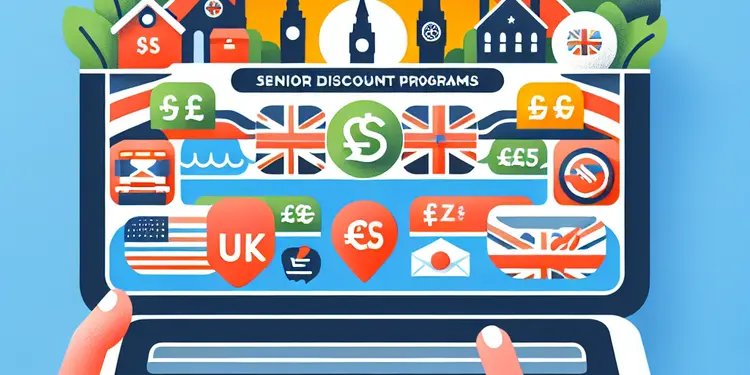
What are senior discount programs?
Relevance: 30%
-

Are there special programs for prisoners with indefinite sentences?
Relevance: 29%
-

Are there educational components to the school meal program?
Relevance: 29%
-

How do I enroll in a virtual ward program?
Relevance: 29%
Understanding Government Support to Avoid Eviction
In the UK, facing the threat of eviction can be a daunting experience. However, there are several government programs and resources available to help individuals and families who are at risk of losing their homes. It is important to understand these options and how they can assist in stabilizing your housing situation.
Discretionary Housing Payments
Discretionary Housing Payments (DHP) are available for individuals who are receiving Housing Benefit or the housing cost element of Universal Credit and still find themselves struggling to meet their rent obligations. These payments are provided at the discretion of local councils and are designed to cover shortfalls in rent payments. When applying, it's crucial to provide evidence of your financial situation and detail the exceptional circumstances that require additional support.
Local Authority Assistance
Local councils in the UK offer various support services for those facing eviction. Councils can provide advice and, in some cases, direct financial assistance to prevent homelessness. This may include mediation between tenants and landlords, guidance on repaying rent arrears, or securing alternative accommodation. It is recommended to contact your local council at the earliest sign of potential eviction to explore what specific aid they offer.
Legal Advice and Representation
The UK government supports legal aid services that can offer free or low-cost legal advice and representation to those unable to afford it. Legal aid can cover various issues, including housing and eviction cases. Programs like Legal Aid ensure that tenants can access justice and have their rights represented in court proceedings if necessary. Consulting with a solicitor can also provide additional options and strategies to avert eviction.
Universal Credit and Housing Support
Universal Credit includes a housing cost element designed to help with rent payments. If you are experiencing a change in income or circumstances that might affect your ability to pay rent, updating your Universal Credit claim can adjust your entitlement and potentially increase support. It's vital to report changes as soon as they occur to maximize the assistance you receive.
Support for Mortgage Interest (SMI)
For homeowners at risk of losing their homes, the Support for Mortgage Interest (SMI) loan can provide help. SMI helps with mortgage interest payments and certain other loans linked to home ownership. It is important to note that SMI needs to be paid back, but it can be an effective temporary solution for those experiencing financial hardship.
Conclusion
While facing eviction is stressful, the UK offers a range of government programs aimed at preventing homelessness. Engaging with these resources early and understanding your rights can provide a vital line of defense during difficult times. Always seek advice from appropriate services to find the best solutions tailored to your circumstances.
Understanding Help from the Government to Avoid Losing Your Home
If you live in the UK and are worried about losing your home, there is help available. The government has different programs to support people and families who might lose their homes. It is important to know about these programs and how they can help you stay in your home.
Extra Help with Rent
If you get Housing Benefit or help with rent through Universal Credit but still struggle to pay your rent, you might get extra money called Discretionary Housing Payments (DHP). Local councils give DHP to help cover rent costs. You need to show them your money situation and explain why you need more help when you apply.
Help from Your Local Council
Local councils in the UK can help if you are at risk of losing your home. They can give advice and sometimes money to help you. They might help talk to your landlord, show you how to pay back overdue rent, or help you find a new home. Contact your local council as soon as you think you might lose your home to find out what help they have.
Getting Legal Help
The UK government has services that give free or low-cost legal help to people who need it. This help can include housing and eviction issues. Legal aid makes sure you can get justice and that your rights are respected in court. Talking to a lawyer can also help you find more ways to avoid losing your home.
Universal Credit and Rent Help
Universal Credit can help with rent payments. If your income changes and you can't pay rent, update your Universal Credit information. This might increase the help you get. Make sure to report any changes as soon as possible to get the most support.
Help for Mortgage Payments
If you own your home and might lose it, you can get a loan called Support for Mortgage Interest (SMI). This loan helps with mortgage interest and other home-related loans. Remember, you will need to pay back SMI later, but it can help when you are having money problems.
Conclusion
Worrying about losing your home is hard, but the UK has many programs to stop homelessness. Use these resources early and know your rights. This can help protect you during tough times. Always ask for advice to find the best help for your situation.
Frequently Asked Questions
What is the Emergency Rental Assistance program?
The Emergency Rental Assistance program provides funds to assist households that are unable to pay rent or utilities due to the COVID-19 pandemic.
How can I find rental assistance programs in my state?
You can search online for state government websites or local housing authorities to find rental assistance programs specific to your state.
Who is eligible for the Emergency Rental Assistance program?
Eligibility often includes having a household income below a certain threshold and experiencing financial hardship due to the pandemic. Specific criteria may vary by state.
What documents do I need to apply for rental assistance?
Typically, you will need identification, proof of income, proof of rental arrears, and a signed lease agreement. Requirements can vary by program.
Can rental assistance cover utility costs as well?
Yes, many rental assistance programs also cover utility costs to help alleviate financial burdens.
How long does it take to receive rental assistance funds?
The timeline can vary by program, but generally, it can take a few weeks to process applications and distribute funds.
Do I have to repay the rental assistance money?
No, rental assistance funds are typically grants and do not have to be repaid.
Is rental assistance available for landlords?
Yes, some programs offer assistance directly to landlords to cover their tenants’ overdue rent.
Can I apply for rental assistance if I am behind on rent?
Yes, if you are behind on rent due to financial hardship, you may qualify for rental assistance.
Are there any COVID-19 protections against eviction?
While specific protections may have ended, some local jurisdictions may still have COVID-19 eviction protections in place. Check with your state or local housing authority.
What steps should I take to avoid eviction?
Reach out to your landlord to discuss your situation, apply for rental assistance, and seek legal aid if necessary.
Can a housing counselor help me avoid eviction?
Yes, HUD-approved housing counselors can provide advice and assistance to help avoid eviction.
What is the role of Legal Aid in eviction prevention?
Legal Aid organizations provide free legal assistance to low-income individuals facing eviction.
How can I apply for HUD rental assistance programs?
You can visit the HUD website or contact your local Public Housing Agency (PHA) for application information.
Are veterans eligible for special housing assistance?
Yes, veterans can access special housing assistance programs through the VA, such as HUD-VASH.
What is the purpose of eviction moratoriums?
Eviction moratoriums temporarily halt evictions to provide relief during public health emergencies or economic crises.
Can state assistance programs help with eviction prevention?
Yes, many states offer specific programs to help prevent eviction and provide rental assistance.
Is there a federal hotline for housing assistance?
Yes, you can contact the HUD hotline at 1-800-569-4287 for information on housing assistance.
How do I communicate with my landlord about rental assistance?
Inform your landlord about your financial situation and any efforts to obtain rental assistance, and request their cooperation.
What can I do if I am served with an eviction notice?
If you receive an eviction notice, seek legal assistance immediately, apply for rental assistance, and explore negotiating with your landlord.
What is the Emergency Rental Assistance program?
The Emergency Rental Assistance program helps people pay rent if they are having money problems. It's a program from the government to help families stay in their homes.
If you are having problems paying your rent, you can ask for help. There are people who can explain how the program works. They can also help you apply.
Here are some things to remember:
- You can talk to someone if you need help with reading.
- There are videos that explain the program with pictures.
- You can ask a friend or family member to read with you.
The Emergency Rental Assistance program gives money to help people who can't pay for rent or utilities because of the COVID-19 pandemic.
How can I get help paying rent where I live?
Here are some tips to help you find rent help:
- Look online for rent help in your area.
- Ask someone you trust for help to search.
- Call local community centers or charities.
- Visit your town or city office for advice.
- Use apps or websites that list rent help programs.
You can look for help with rent on the internet. Search for your state government's website or local housing help. They have programs to help you with rent.
Who can get help from the Emergency Rental Assistance program?
If you need help paying your rent because of money problems, you might be able to get help from this program. To find out if you can get help, ask someone at the program. They can explain who can get help.
If you have questions or need help, you can:
- Ask someone you trust to help you understand.
- Use a phone or computer to read out the information.
- Look at pictures or videos that explain the program.
To get help, families usually need to make less money than a set amount. They also need to show that the pandemic made it hard for them to pay for things. The rules can be different in each state.
What papers do I need to ask for help with rent?
If you need help with rent, you need some papers. Here are some papers you might need:
- Your ID card or passport
- Proof that you have a job, like a payslip
- Proof of where you live, like a bill or a lease
- Bank statements
If you need help, ask a friend or use a computer to look up more information.
You will usually need to show who you are with ID, how much money you make, proof that you owe rent, and a paper that says you are allowed to live in the place. Different programs may ask for different things.
If you need help, you can ask someone you trust or use tools like read-aloud features on gadgets.
Can money help pay for rent and bills?
Yes, many programs that help with rent can also help pay for water, electricity, and gas bills. This can make it easier to pay for everything.
How long will I wait to get help paying rent?
How long it takes can be different for each program. Usually, it takes a few weeks to look at applications and give out money.
Do I need to pay back the help with rent money?
No, you do not have to pay back money you get for rental help. This money is usually a gift.
Can landlords get help with rent?
Yes, some programs give help to landlords to pay the late rent that tenants owe.
Can I get help with rent if I am late paying it?
If you are having money troubles and can't pay your rent, you might be able to get help to pay it.
Can you be kicked out of your home during COVID-19?
Some rules that stopped people from losing their homes because of COVID-19 might not be there anymore. But in some places, there might still be rules to help. You should ask your local or state housing office to find out more.
How can I stop being kicked out of my home?
Talk to your landlord about your problem. You can try to get some help to pay rent. If you need more help, ask a lawyer.
Can a housing counselor stop me from losing my home?
A housing counselor is a person who can help you with home problems.
If you are worried about losing your home, a housing counselor can help:
- They explain what you can do to stay in your home.
- They can talk to your landlord with you.
- They tell you about people who can help, like lawyers.
It is good to ask for help early.
There are tools to help you understand:
- Use pictures to make it clearer.
- Read with a friend or family member.
- Ask questions if you don’t understand.
Yes, housing helpers approved by HUD can give advice and help you if you are worried about losing your home.
How does Legal Aid help stop people from losing their homes?
Legal Aid groups help people who don't have much money. They give free help with legal problems to people who might lose their homes.
How can I get help to pay for my rent with HUD programs?
If you need help to pay rent, HUD can help. Here is how you can get started:
- Visit the HUD website.
- Find a Public Housing Agency (PHA) near you on the website.
- Call or visit the PHA to ask about help with rent.
- Bring your ID and information about your money and job when you go.
It can help to have someone with you. Ask a friend or family member to come along. You can also ask the workers at the PHA if you do not understand something. They are there to help you.
You can go to the HUD website to find information. Or you can talk to your local Public Housing Agency (PHA) to learn how to apply.
Can veterans get help with housing?
Yes, veterans can get special help with housing through the VA. One program is called HUD-VASH.
Why do we have rules to stop evictions?
An eviction is when someone is told they have to leave their home.
A moratorium is a rule that stops something from happening.
So, an eviction moratorium is a rule that stops people from losing their homes.
This rule helps people stay in their homes when they are having money problems.
If you find it hard to understand, you can ask someone you trust for help. You can also use tools like text-to-speech that read the words out loud.
Eviction moratoriums stop people from getting kicked out of their homes for a while. This happens during times when many people are sick or when money problems are really bad.
Can the government help stop people being kicked out of their homes?
Yes, many places have special programs to help people stay in their homes and pay their rent.
Can I call someone for help with housing?
Yes, you can call the HUD helpline. The number is 1-800-569-4287. They can help you with information about housing help.
How can I talk to my landlord about getting help with rent?
Tell your landlord if you are having money problems. Let them know if you are trying to get help to pay rent. Ask them to work with you.
What should I do if I get a letter saying I have to leave my home?
If you get a paper that says you have to leave your home, don't worry. Here are some steps to help you:
- Ask an adult you trust to help you read the letter.
- You can talk to someone who knows about houses, like a housing helper or a lawyer.
- You can call a helpline for advice. They can tell you what to do next.
Remember, there are people who can help you understand and feel better.
If you get a letter saying you have to leave your home, get help from a lawyer right away. Ask for help to pay your rent and try talking to your landlord.
Useful Links
This website offers general information and is not a substitute for professional advice.
Always seek guidance from qualified professionals.
If you have any medical concerns or need urgent help, contact a healthcare professional or emergency services immediately.
Some of this content was generated with AI assistance. We’ve done our best to keep it accurate, helpful, and human-friendly.
- Ergsy carfully checks the information in the videos we provide here.
- Videos shown by Youtube after a video has completed, have NOT been reviewed by ERGSY.
- To view, click the arrow in centre of video.
- Most of the videos you find here will have subtitles and/or closed captions available.
- You may need to turn these on, and choose your preferred language.
- Go to the video you'd like to watch.
- If closed captions (CC) are available, settings will be visible on the bottom right of the video player.
- To turn on Captions, click settings .
- To turn off Captions, click settings again.
More Items From Ergsy search
-

Are there any government programs that can help me avoid eviction?
Relevance: 100%
-

Can I negotiate with my landlord to avoid eviction?
Relevance: 61%
-

Are there government programs that help with utility bills?
Relevance: 53%
-

Are there changes to the eviction process?
Relevance: 51%
-

What can I do if my landlord wants to evict me?
Relevance: 50%
-

What are my rights during the eviction process?
Relevance: 48%
-

How do I apply for a small business loan through a government program?
Relevance: 47%
-

Where can I find information on government support programs for small businesses?
Relevance: 46%
-

Has the notice period for eviction changed?
Relevance: 46%
-

Can eviction affect my credit score?
Relevance: 45%
-

What are the consequences of having an eviction on my record?
Relevance: 45%
-

Can I appeal a court's eviction decision?
Relevance: 44%
-

Can I stop an eviction if I catch up on rent payments?
Relevance: 44%
-

Does filing for bankruptcy stop an eviction?
Relevance: 44%
-

How can I contest or challenge the eviction?
Relevance: 43%
-

How do I find alternative housing quickly if evicted?
Relevance: 43%
-

Can my landlord evict me without providing a reason?
Relevance: 42%
-

Is mediation an option to resolve eviction disputes?
Relevance: 42%
-

What can I do if I believe my eviction is retaliatory?
Relevance: 42%
-

What should I do if I can't afford a lawyer for the eviction process?
Relevance: 41%
-

Can a landlord lock me out or remove my belongings to evict me?
Relevance: 41%
-

What happens if I stay beyond the eviction deadline?
Relevance: 40%
-

What should I do if I receive an eviction notice from my landlord?
Relevance: 39%
-

How can I prepare for an eviction court hearing?
Relevance: 39%
-

Can a landlord evict me for complaining about property conditions?
Relevance: 38%
-

How long do I have to move out after receiving an eviction notice?
Relevance: 37%
-

Avoid misleading websites that copy government websites GOV.UK
Relevance: 35%
-

How can I get government support for my small business?
Relevance: 33%
-

Are there mentorship programs for community helpers?
Relevance: 33%
-

What are diversion programs for drug offenders?
Relevance: 32%
-

Are there any food assistance programs available for seniors?
Relevance: 32%
-

What types of government support are available for small businesses?
Relevance: 32%
-

Are there any financial assistance programs for mobility equipment?
Relevance: 32%
-

Are there financial support programs for carers of Alzheimer's patients?
Relevance: 32%
-

Are there training programs for using mobility equipment?
Relevance: 31%
-

What are some safety programs specifically for seniors?
Relevance: 31%
-

What are senior discount programs?
Relevance: 30%
-

Are there special programs for prisoners with indefinite sentences?
Relevance: 29%
-

Are there educational components to the school meal program?
Relevance: 29%
-

How do I enroll in a virtual ward program?
Relevance: 29%


